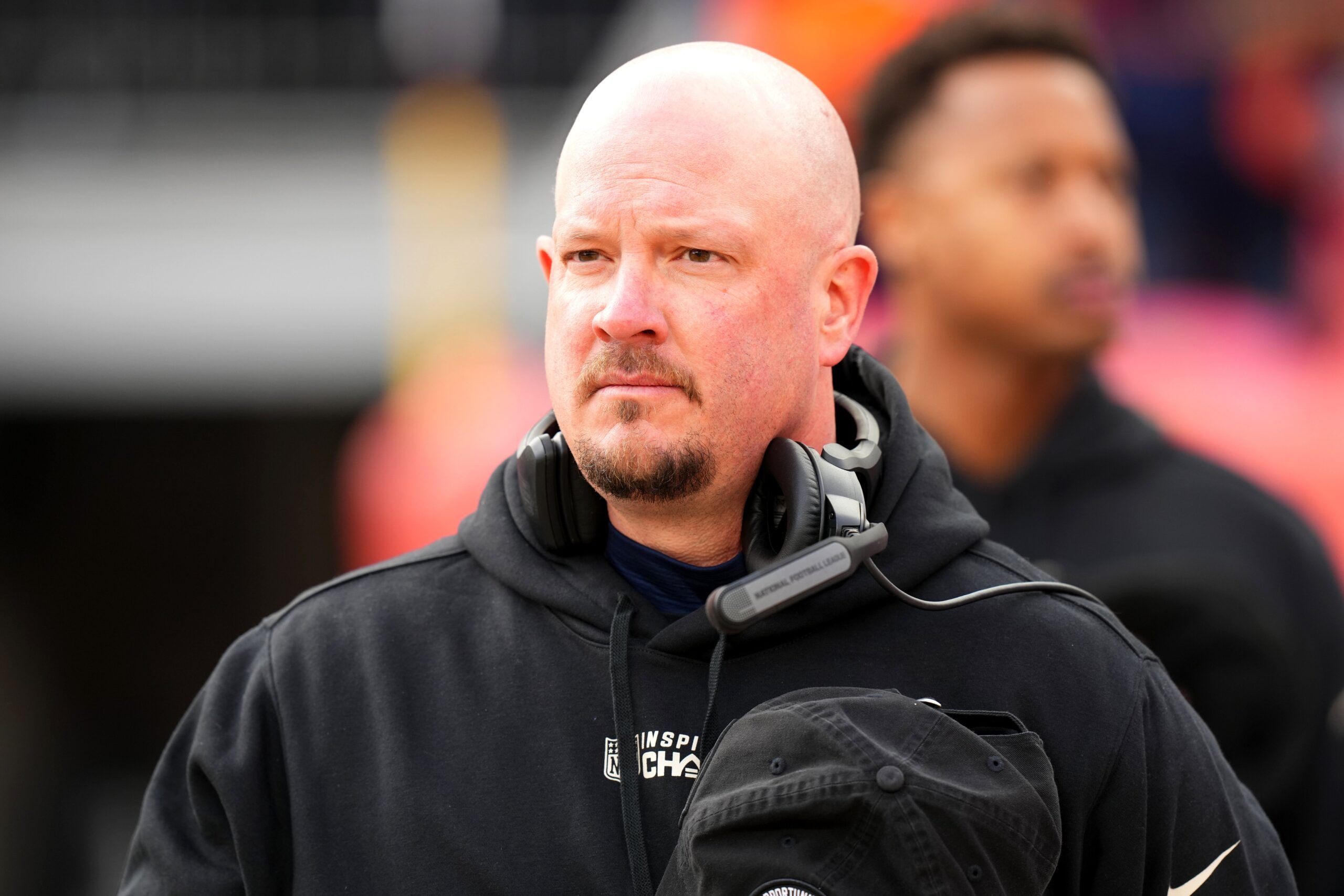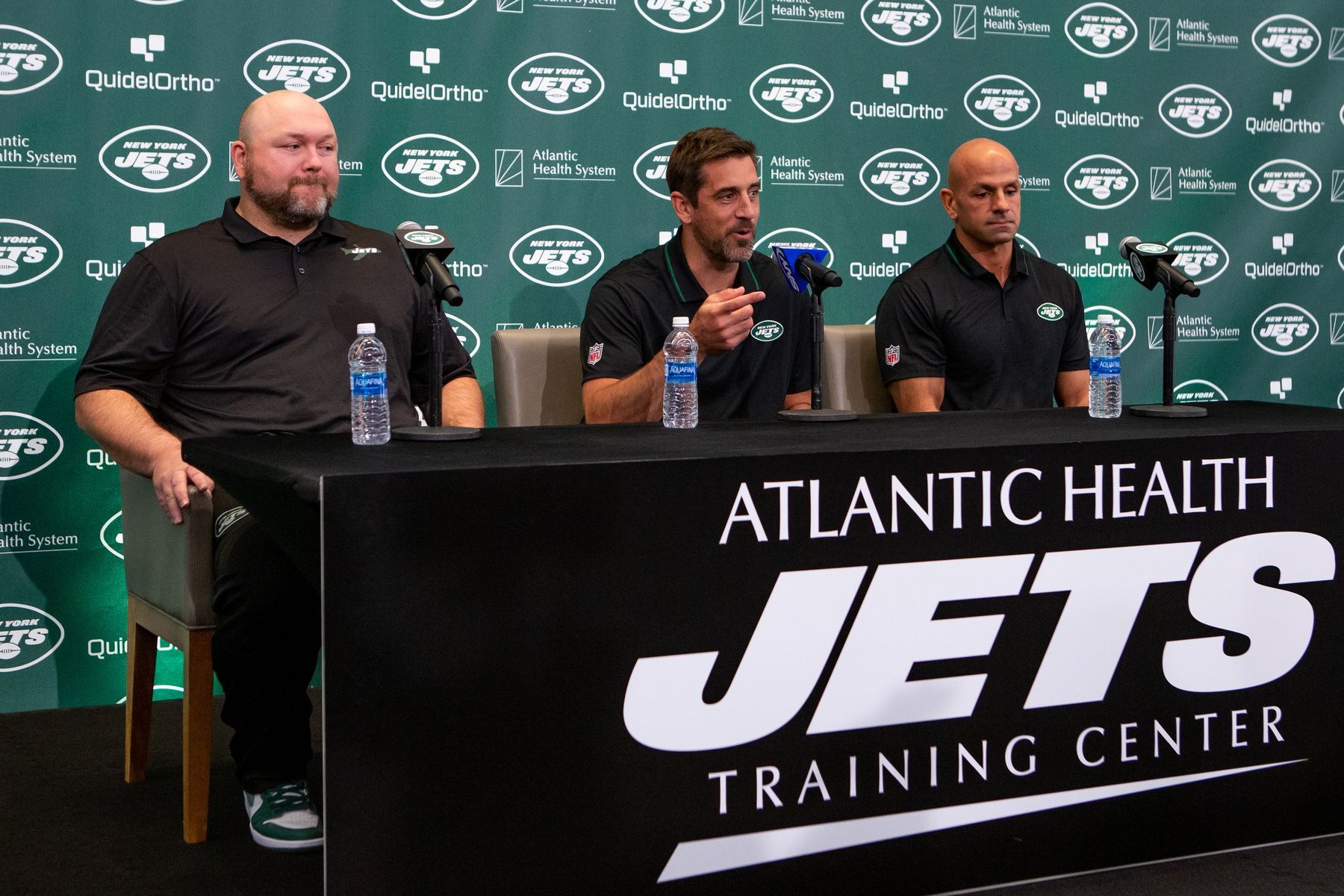Stop us if you’ve heard this before. Nathaniel Hackett has just been hired to a new team. That team finished 7-10 the year before and in last place in their division. That team decides they need to make a splash, needing to really boost the offense. They trade for an MVP-caliber quarterback who has won a Super Bowl. That team is then given the maximum number of prime-time games for the upcoming season.
Depending on which job Hackett got hired for in the version of the story you’re telling, you could be speaking accurately about either the 2022 Denver Broncos or the 2023 New York Jets. If you’re a Jets fan, you’re hoping that’s where the similarities end. Using what behavior science teaches us about the environment, those fans can be confident they do end there.
Are the Jets Repeating the Broncos’ Mistakes?
One important thing to remember is that in the NFL, all 32 teams are entirely different environments. Additionally, every role is different from another. What a head coach impacts on a team is different from what an offensive coordinator impacts. Additionally, no two players are the same.
The issues that plagued Hackett in Denver were very much related to the responsibilities and burdens that come with being a head coach. A head coach doesn’t need to be your X’s and O’s guy. Yes, you want him to be an adept strategist, but he has to be able to lead 47 men on Sundays to victory. Being an offensive savant doesn’t achieve that on its own.

Head coaches must be able to relate to players. Now, that doesn’t mean he has to pretend to like hip-hop or death metal, nor does he have to go to sporting events with them. Head coaches need to have players believe that they’ve got their back. Players also need to know that not only will they be held accountable, but that it will be done from a place of helping them improve their careers.
From all accounts, this was the part Hackett struggled with. He didn’t relate well socially with the players he didn’t already know. This is inclusive of Russell Wilson, whose preferential treatment is well documented.
Additionally, Hackett didn’t hold everyone accountable equally. This sews distrust and dissent in a locker room, including between the players themselves. Ultimately, it will fall apart, as it did in Denver.
MORE: NFL Mock Draft Simulator With Trades (FREE)
Assuming the role of offensive coordinator in New York, Hackett will immediately have a few of those burdens removed, in no small part because he won’t be responsible for the half of the roster that plays defense.
What’s more, Hackett will be expected to be a strategist, while the social responsibilities and daily interactions will be on the position coaches.
Additionally, the one player Hackett will need to build a relationship with is Aaron Rodgers. Good news on that front. He already has one and won’t have to start from scratch. Hackett and Rodgers are very close, and Rodgers knows he helped him win an MVP.
Aaron Rodgers Knows the Playbook
The good news here is two-fold. Rodgers knows Hackett really well and has played in this system for the last four consecutive years. Yes, even the year Hackett was in Denver, the system didn’t change.
Rodgers won’t have a learning curve in New York. Typically when a player joins a new team, a new environment, it’s the learning curve that makes it difficult — especially when a player is leaving somewhere he’s been for a long time.
New environments require new behaviors. Knowing which behaviors work and need to be reinforced vs. extinguished takes time. Rodgers, unlike Wilson, won’t have that issue. When Wilson was traded to Denver, he was experiencing that environment for the very first time. Likewise, as we established, Hackett was unable to find the right environmental impacts to shape the behaviors necessary for winning football.
Rodgers is going to be stepping into a familiar environment, and so will his Jets teammates. Although the players who were there before will have a new offensive coordinator, they won’t exactly have a new playbook or be learning a new language.
MORE: New York Jets Season Preview
Hackett and his predecessor Mike LaFleur (brother of Hackett’s Green Bay boss Matt LaFleur) come from the same school of offense: the Shanahan-style of the West Coast offense.
Both coaches are members of the QB Collective, which is a think-tank-style collection of coaches led by Mike and Kyle Shanahan. So the Jets players who were already there last year won’t need to feel like they’re entering a brand new environment. Additionally, New York’s front office, to further provide Rodgers with a familiar environment, has added two of his main targets from Green Bay in Allen Lazard and Randall Cobb.
The Jets are positioned better than last year’s Broncos because Hackett was driving that bus. In New York, he’s simply a piece of a carefully crafted environment that is being built around existing successful behavior profiles.
This Doesn’t Mean the Jets Are Winning the Super Bowl
To be clear, the Jets still have an uphill climb to reach the top of the mountain. The AFC East is more competitive than it has been in decades, and the conference is stacked with elite quarterbacks, in no small part due to the addition of Rodgers.
In 2023, the Jets’ schedule will see them face Josh Allen and Tua Tagovailoa twice, along with Dak Prescott, Patrick Mahomes, Jalen Hurts, and Justin Herbert. That’s nearly half of New York’s schedule with elite quarterbacks.
Nevertheless, the Jets’ chances of success have greatly increased because of the environment that they’ve created. That, more than anything else, is why they won’t be a repeat of the 2022 Broncos.

